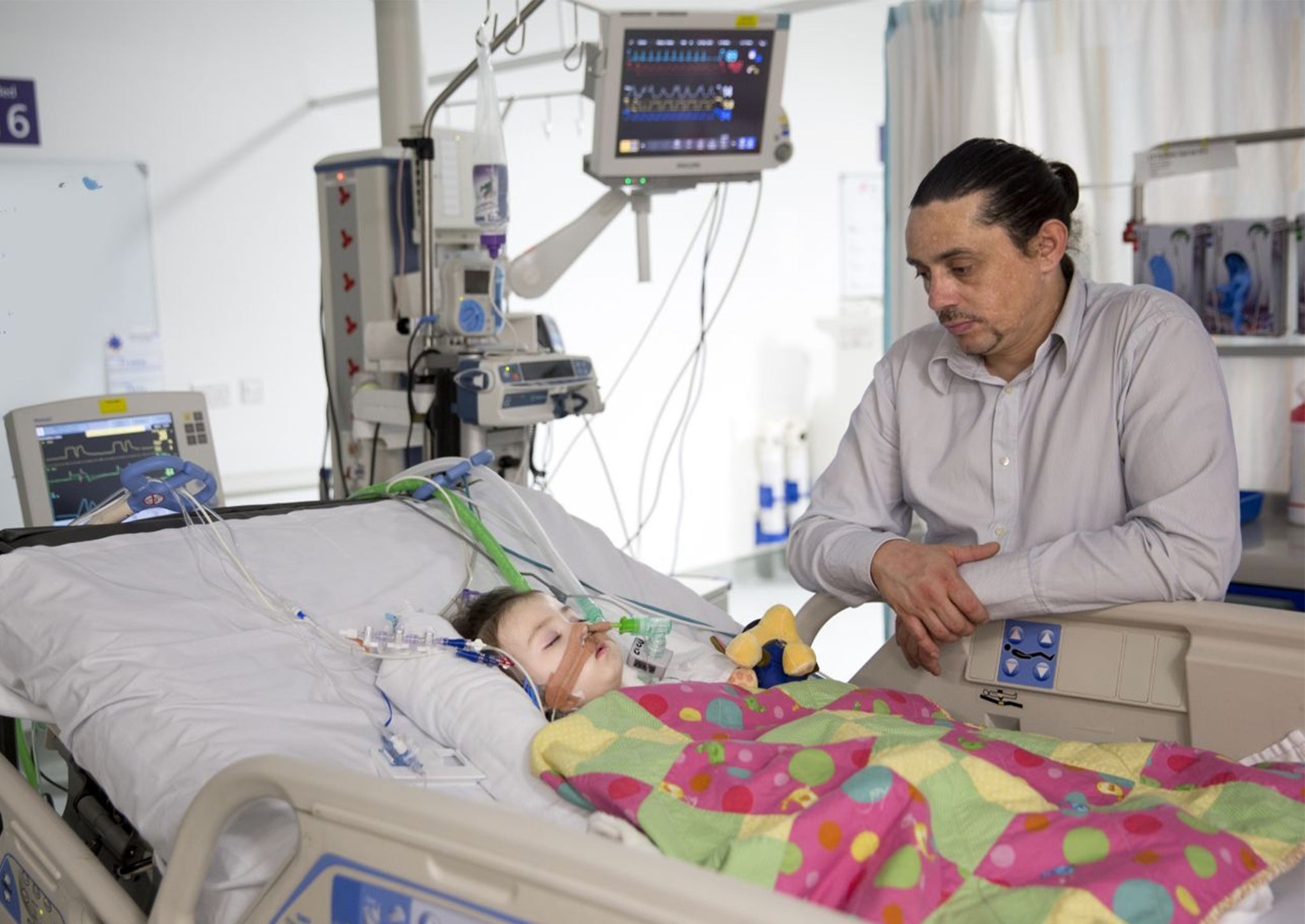Great Ormond Street Hospital surgeon warns how swallowing a button battery could be lethal
Martin Elliott says he fears hundreds of children could suffer life-threatening injuries from swallowing the small batteries

Your support helps us to tell the story
From reproductive rights to climate change to Big Tech, The Independent is on the ground when the story is developing. Whether it's investigating the financials of Elon Musk's pro-Trump PAC or producing our latest documentary, 'The A Word', which shines a light on the American women fighting for reproductive rights, we know how important it is to parse out the facts from the messaging.
At such a critical moment in US history, we need reporters on the ground. Your donation allows us to keep sending journalists to speak to both sides of the story.
The Independent is trusted by Americans across the entire political spectrum. And unlike many other quality news outlets, we choose not to lock Americans out of our reporting and analysis with paywalls. We believe quality journalism should be available to everyone, paid for by those who can afford it.
Your support makes all the difference.One of the country’s leading paediatric surgeons has warned of the dangers of deadly lithium “button” batteries after treating two patients in recent weeks who became critically ill after swallowing them.
Martin Elliott, the head of the National Service for Severe Tracheal Disease at Great Ormond Street Hospital (GOSH), said he feared that hundreds of children a year could potentially be suffering life-threatening injuries as a result of swallowing the small, shiny batteries. If swallowed the batteries can cause life-limiting damage to the oesophagus.
They are most dangerous though if the battery’s negative pole comes into contact with a fluid surface, causing electrolysis and releasing sodium hydroxide, also known as caustic soda, which eats through into the trachea with a high risk of death.
The batteries are increasingly common in toys, as well as household items including remote controls. And the tracheal team at GOSH fear Christmas could see a spike in cases after a steady rise in the number of children taken to hospital in recent years.
“Parents need to be aware of the risk this Christmas. Children are going to get presents and presents are going to contain more button batteries. Button batteries are dangerous, so take care, watch you kids and don’t let them fiddle with the battery compartment of toys,” said Professor Elliott, who is calling for battery manufacturers to consider redesigning batteries to make them harder to swallow. He also wants manufacturers to make button battery compartments “totally childproof”.
There are as many as 6,000 button battery swallowings a years in the US but numbers are not recorded here. He urged parents and A&E doctors to be alert to the risk.
“In the best case, a parent sees what has happened and a child can be rushed to A&E and the battery removed within two hours, but the consequences of delay are not just immediately life-threatening but also life-changing,” he said.
Professor Elliott’s call has been backed by the Royal Society for the Prevention of Accidents, which said that the “seemingly harmless little batteries can cause serious injury to children”.
One of the two patients Professor Elliott has treated in recent weeks is two-year-old Frankie Gibson, from Bournemouth. She is in intensive care after, unknown to her parents, she swallowed a button battery in August. The battery became lodged in her oesophagus and eroded through into her trachea. Her parents rushed her to hospital when she had trouble breathing, but it took doctors in Poole and Southampton a several days to discover the cause and remove the battery before her transfer to GOSH.
Her father, Dion, 38, said he and Frankie’s mother, Hayley Thon, already knew about the risk from normal batteries and kept them locked away, but that Frankie had managed to flip-off the loose fitting on a pair of 3D glasses for the TV. “You worry about normal batteries but you don’t think about button batteries. My message to parents it to watch their children and make sure these are secured. Until it happens, nobody knows,” he said.
Frankie endured a six-hour operation to repair her trachea but is now suffering from a chest infection. “She’s a proper little battler … but it’s not looking like we will be home for Christmas.”
Join our commenting forum
Join thought-provoking conversations, follow other Independent readers and see their replies
Comments